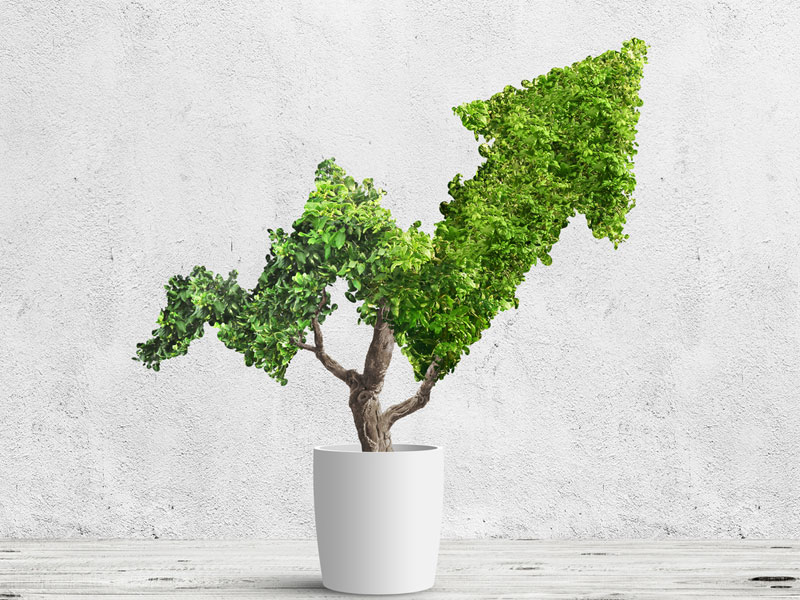
This article appears in the April 2021 issue of Investment Executive. Subscribe to the print edition, read the digital edition or read the articles online.
Responsible investments were put to the test during 2020’s market volatility and economic uncertainty. Despite a challenging environment, many environmental, social and governance (ESG) funds produced stellar performances.
“2020 was a pretty defining year for the sustainable investment space,” said Martin Grosskopf, vice-president, portfolio manager and director of sustainable investing at Toronto-based AGF Management Ltd.
Grosskopf said last year was arguably the first major test of ESG funds, which have experienced explosive growth since the global financial crisis of 2008.
“During Covid, and especially during the initial market decline back in March [2020], many of the funds that are focused on sustainability outperformed the broader market [and] their global equity peer groups,” Grosskopf said.
The AGF Global Sustainable Growth Equity Fund, which Grosskopf manages, was no exception. According to data from Morningstar Inc., the AGF fund had a total return of 51.3% for the year ended March 31, outpacing the overall global equity category by 29.7 percentage points and the Morningstar Global Markets GR CAD index by 12.5 percentage points. The AGF fund had assets under management (AUM) of $486.3 million as of April 5.
The AGF fund, launched in 1991, focuses on impact and thematic investing in sectors such as sustainable energy and health and well-being. Grosskopf said the “health angle” was a prominent theme in the fund last year, with particular attention paid to companies in the probiotics and plant-based spaces.
As of Jan. 29, the AGF fund’s top 10 holdings were led by Dublin-based autoparts company Aptiv PLC (3.7%), California-based consulting and engineering firm Tetra Tech Inc. (2.9%) and Milan-based telecom firm Prysmian Group (2.9%). The fund’s largest sector allocations at that time were industrials and IT, accounting for a combined 53.3% of the portfolio.
Grosskopf described Aptiv, a longtime holding of the AGF fund, as “the best Tier 1 supplier” in the electric-vehicle space. “Aptiv was one of the first auto suppliers to really focus on electrification and safety within vehicles,” he said. Grosskopf increased the fund’s position in Aptiv during the market decline last year, when there was a sell-off in the auto sector.
California-based Trimble Inc. (2.7%), a technology company that services the agriculture sector, also is among the AGF fund’s top holdings. Agriculture has become increasingly attractive as farmer economics improve, Grosskopf said.
“We were actually quite negative on agriculture fundamentals for four or five years, as farmer income was pretty poor in terms of year-over-year change. But that’s changed dramatically; crop prices are up,” Grosskopf said.
Given the “strong cycle” that’s expected in agriculture, Grosskopf has increased the AGF fund’s exposure to Trimble and Nebraska-based Valmont Industries Inc., a provider of systems for sustainable irrigation.
A company’s dedication to solving sustainable issues is important to Grosskopf and his team. As part of their investment process, they examine a company’s emissions of carbon, sulphur and particulate matter, as well as land and water use.
“We’re measuring the environmental intensity of every business that we own,” Grosskopf said. “We can’t just say that because we want to own the most favourable sector right now, we can add in a bunch of heavy emitters.”
Jeremy Richardson, senior portfolio manager, global equities, at RBC Global Asset Management (U.K.) Ltd. in London, is co-manager of the RBC Vision Global Equity Fund, which launched in 2007 and had AUM of $1.2 billion as of April 5.
The RBC fund screens out companies in “controversial industries” such as alcohol and gambling, and also uses ESG integration and shareholder engagement as part of its strategy. The RBC team uses its own internal ESG metrics to target competitive, growing names with strong management teams and high ESG ratings.
“Anybody can use [third-party ESG] data scores,” Richardson said. “To really understand the ESG risks and opportunities, you need to do this yourself.”
The team’s process includes audits of how companies manage human capital, culture and governance. The approach paid off in 2020, with the RBC fund returning 45.1% for the year ended March 31, outpacing the overall global equity category by 23.5 percentage points and the Morningstar Global Markets GR CAD index by 6.3 percentage points.
The RBC fund has a large allocation to U.S. equities (56.7%), with a 41.6% allocation to international stocks. The fund has a significant weighting (15.5%) in the IT sector; top holdings in early March included Microsoft Corp. and Alphabet Inc.
Both Microsoft and Alphabet (the latter is the parent company of Google) are “responsibly managed” companies, Richardson said. Microsoft’s technology — such as cloud computing, video conferencing and data analytics — has been vital during the pandemic, he noted.
Alphabet, Richardson added, has been proactive in “democratizing the availability of information” without doing business in “controversial regimes.”
Another holding of the RBC fund is Washington, D.C.-based Danaher Corp., a science and technology company that has been involved in Covid-19 testing and vaccine development. But Richardson said he isn’t investing based on pandemic trends; Danaher has been a longtime holding.
“It would be a mistake for investors to play that thematic view on the pandemic,” he said.
Rather, sticking with quality names over many years is key to Richardson’s strategy as the ESG space evolves.